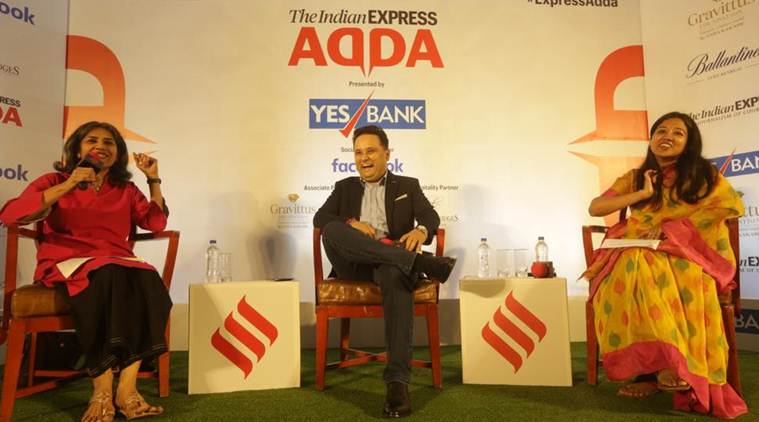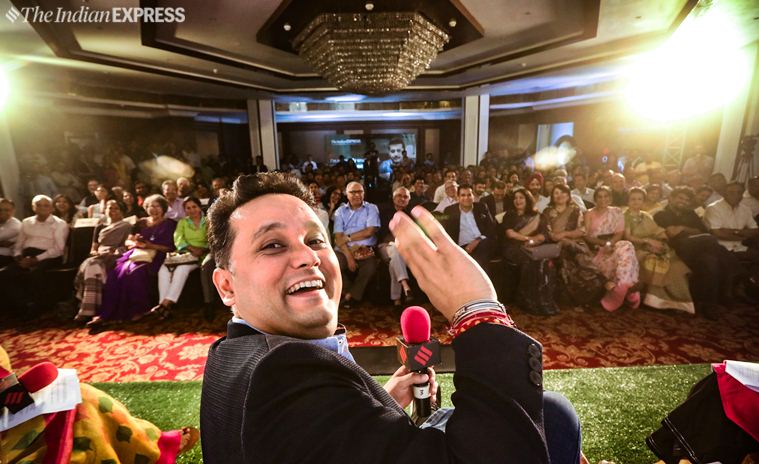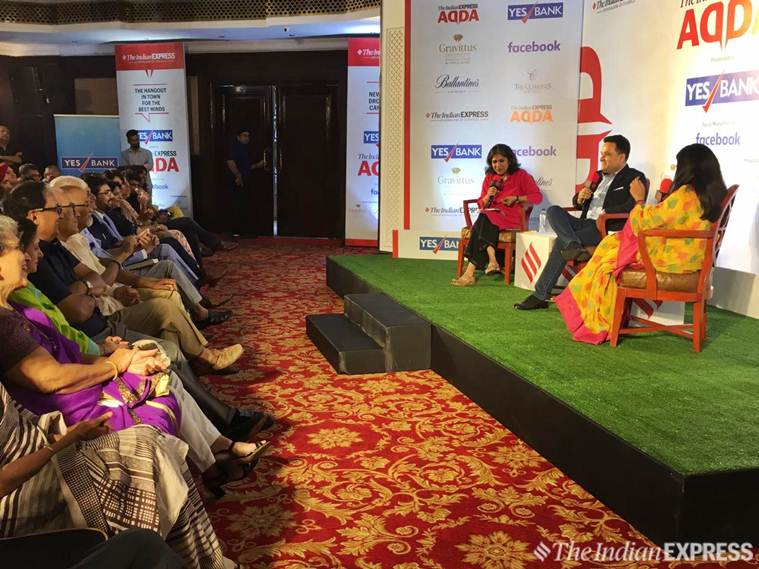
“PUBLIC DEBATE in India has got captured by two groups — left-wing extremists and right-wing extremists — who tend to approach things simplistically. Truly, both the groups are a ‘Ram banaye jodi’ (made for each other) because they feed each other and actually need each other to be alive. But the sad part is that those of us in the centre, which in my opinion is a vast majority, don’t speak enough, so perhaps we should attempt to speak more.”
That was author Amish, a graduate of IIM-Calcutta who is known for exploring Hindu mythology in fictional narratives, speaking at the Express Adda Monday evening. The 44-year-old had worked for over a decade in the financial services industry before taking to writing full time.
At the Express Adda, which is a series of informal interactions organised by The Indian Express Group and features those at the centre of change, Amish fielded questions on atheism and religion, ancient wisdom and modern practices.
Speaking extensively on the constant overlooking of ancient wisdom, he said religion and liberalism can go hand in hand if we are taught about our culture.

“Our literature classes speak more of Shakespeare but let’s teach our own texts first. If you read Kalidasa or Mirza Ghalib first, you’ll realise the innate liberalism. And this is not to do with Hinduism, this is the way all religions are practised in India…We must teach people from one state about the literature greats from another state. People in UP must learn of works by Thiruvalluvar, people in Tamil Nadu and Kerala must learn about Kalidasa or Mirza Ghalib,” he said.
Pointing to a tilt towards north India, especially Delhi, in the way history is taught in the country, Amish said, “There are other important regions and if we don’t teach that, we’re not building a sense of nationhood and not getting a sense of the different narratives that make up India.”
History, he said, is seen as one of invasions, from those who came through the Khyber Pass and conquered Delhi.
“But why did the invaders come only from the northwest and not the northeast, has anyone been taught that? Most people don’t know that the Ahoms never lost a battle, so invaders could never come from there. We get a very inadequate understanding of our country, because of this focus on Delhi. It’s very sad about how our history is presented to us,” he said.
On his plans for the Nehru Centre in London, which he will be heading soon, Amish said, “I think it might be a little early to speak on that, and there are some processes to go through before one goes there. When one takes charge, that’s the best time to speak.”

He was more forthcoming, however, on his literary plans, among them a possible book on Brahma, a god he said hasn’t been not explored much in popular culture. “I’ve left enough clues on the books that I will write over the next 20-25 years in my first book, ‘The Immortals of Meluha’, and my hardcore readers have decoded many of them,” said the author, who has also initiated a writers’ lab, where he will guide budding writers to weave stories around some of his ideas.
In 2010, Amish self-published the first of his runaway hits, ‘The Immortals of Meluha’, a retelling of the life and legend of Lord Shiva. The next two installments of The Shiva Trilogy — ‘Secret of the Nagas’ (2011), and ‘Oath of the Vayuputras’ (2013) — made it, arguably, the fastest-selling book series in the history of Indian publishing. His latest offering, ‘Raavan: The Enemy of Aryavarta’, is the third book of his ongoing Ram Chandra series.
The Express Adda was moderated by The Indian Express Deputy Editor Seema Chishti and Associate Editor Paromita Chakrabarti.